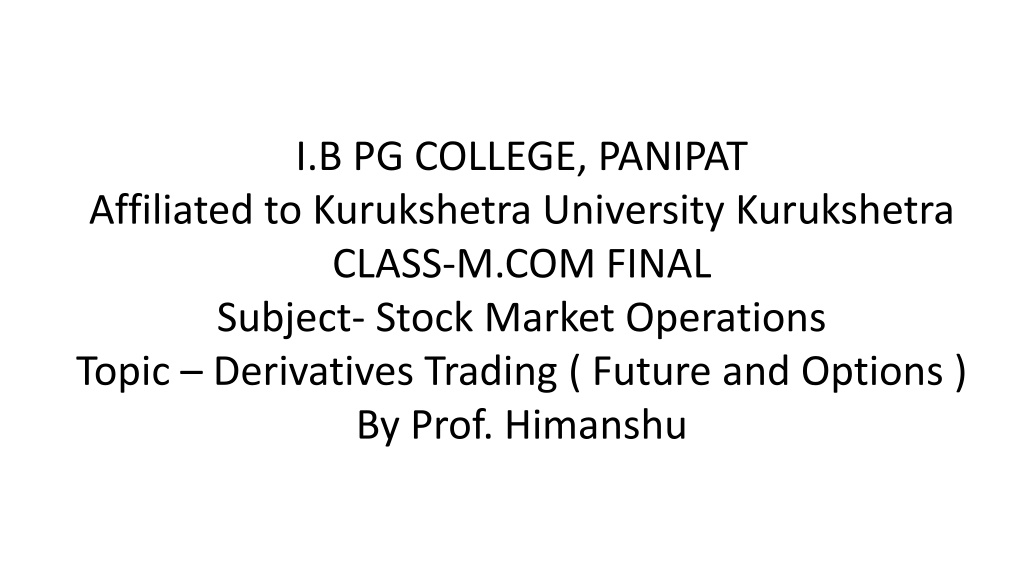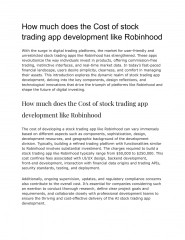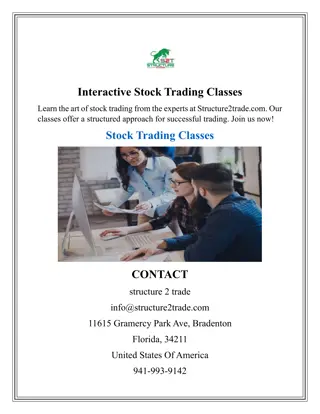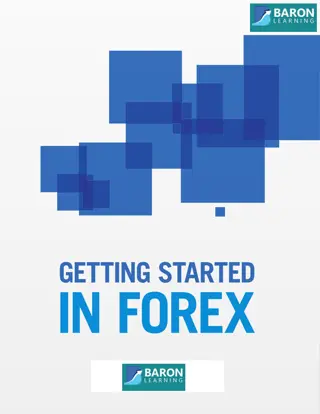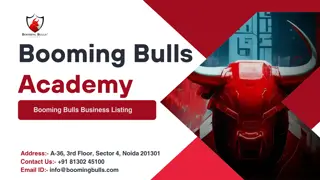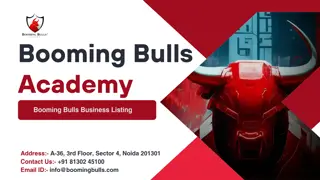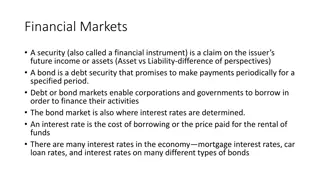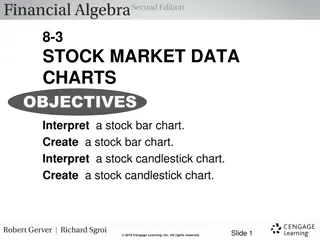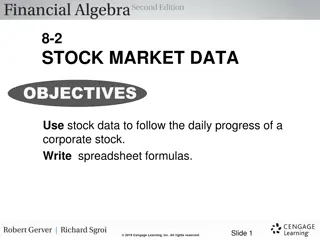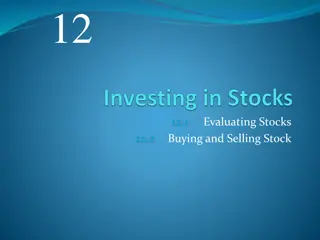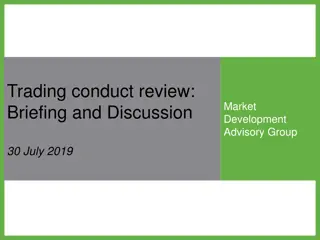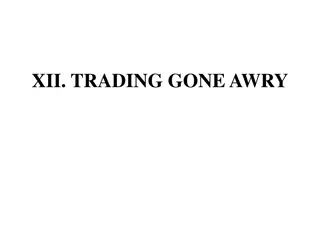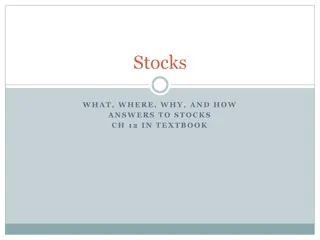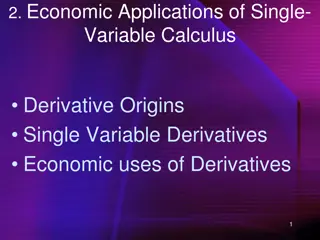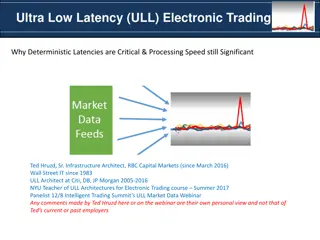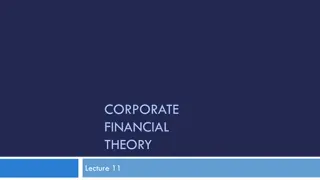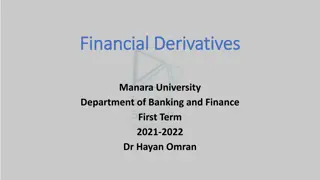Understanding Derivatives Trading in Stock Market Operations
Derivatives in stock market operations are financial contracts derived from underlying assets like stocks, bonds, and commodities. Learn about the meaning of derivatives, how to trade in the derivative market, features of derivatives, players involved, and types of derivative contracts like forwards, futures, options, and swaps.
Download Presentation

Please find below an Image/Link to download the presentation.
The content on the website is provided AS IS for your information and personal use only. It may not be sold, licensed, or shared on other websites without obtaining consent from the author. Download presentation by click this link. If you encounter any issues during the download, it is possible that the publisher has removed the file from their server.
E N D
Presentation Transcript
I.B PG COLLEGE, PANIPAT Affiliated to Kurukshetra University Kurukshetra CLASS-M.COM FINAL Subject- Stock Market Operations Topic Derivatives Trading ( Future and Options ) By Prof. Himanshu
Meaning of Derivatives A derivative is a financial product which has been derived from another financial product. Derivatives are financial contracts whose value is dependent on an underlying asset or group of assets. The commonly used assets are stocks, bonds, currencies, commodities and market indices. The value of the underlying assets keeps changing according to market conditions. The basic principle behind entering into derivative contracts is to earn profits by speculating on the value of the underlying asset in future. Definition A derivative is a contract between two parties which derives its value/price from an underlying asset. The most common types of derivatives are futures, options, forwards and swaps.
How To Trade In Derivatives Market? You need to understand the functioning of derivative markets before trading. The strategies applicable in derivatives are completely different from that of the stock market. Derivative market requires you to deposit margin amount before starting trading. The margin amount cannot be withdrawn until the trade is settled. Moreover, you need to replenish the amount when it falls below the minimum level. You should have an active trading account which permits derivative trading. If you are using services of a broker, then you can place orders online or on the phone. For selection of stocks, you have to consider factors like cash in hand, the margin requirements, the price of the contract and that of the underlying shares. Make sure that everything is as per your budget.
Features of Derivatives Traded on exchange All transactions in derivatives take place in future specific date. Financial products and its value is derived from another financial asset. Cost effective protection to investors against different types of risk. Derivatives can enhance liquidity by improving the credibility of the investors dealing in these derivatives. Hedging device- Reduces risk.
Players in Derivative Market Hedger- Hedger is a trader who uses derivatives as means to offset the risk of a position in the asset. Hedges seek to protect themselves against price changes in a commodity in which they have an interest. Speculators- A Speculator is one who wants to profit from the fluctuation in price. Speculators are prepared to assume risk in return for quick and large profits. Arbitrageurs- An Arbitrageur is one who wants to profit from the price difference in two markets. The arbitrageur look for opportunities for making money out of price mismatches in two different markets.
Types of Derivative Contracts Forwards Futures Options SWAPS
Forwards Contracts A forward contract is a customized contract between two parties to buy or sell an underlying asset on time at a price agreed today. A forward contract is a contract between two parties that commits them to buy or sell an asset at an agreed price on a specific date in the future.
Future Contract A futures contract is a legal agreement to buy or sell a particular commodity asset, or security at a predetermined price at a specified time in the future.
Difference between Forward and Future Contracts Difference between Forward and Future Contracts
Options Options are financial instruments that are derivatives based on the value of underlying securities such as stocks. An options contract offers the buyer the opportunity to buy or sell depending on the type of contract they hold the underlying asset.
Call Option - Call options give the holder the rightbut not the obligation to buy something at a specific price for a specific time period. Put Option-Put options give the holder the right but not the obligation to sell something at a specific price for a specific time period.
Swaps Swaps Swap refers to an exchange of one financial instrument for another between the parties concerned. This exchange takes place at a predetermined time, as specified in the contract. Types of Swaps Interest Rate Swap:- swapping only the Interest related cash flows between the parties in the same currency. Currency swap:-Swapping both principal and interest between the parties ,with the cash flowS from different currencies.
